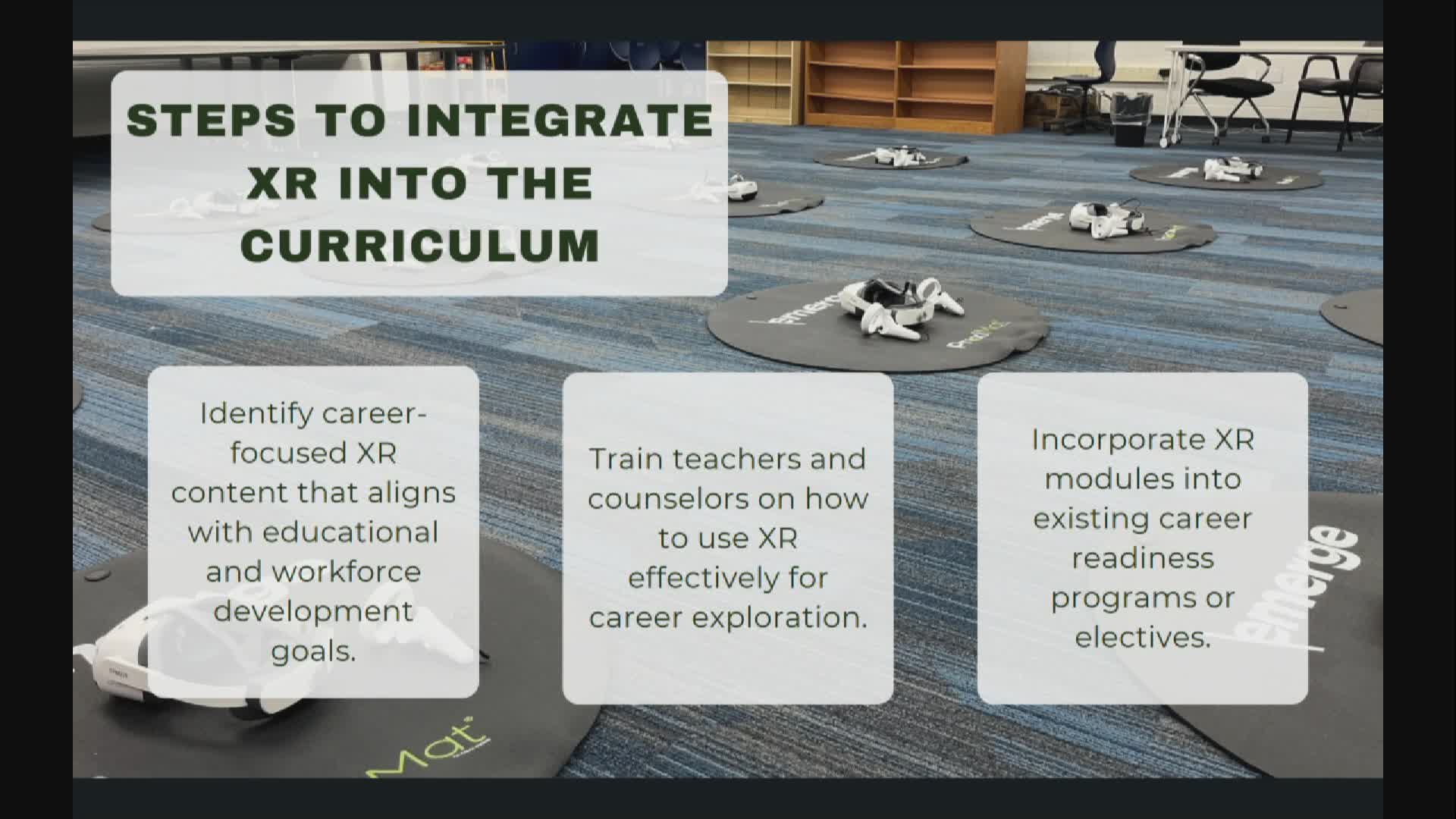Michigan Education Leaders Explore Virtual Reality for Career Readiness Programs
April 29, 2025 | Appropriations - School Aid and Education, Appropriations, House of Representative, Committees , Legislative, Michigan
This article was created by AI summarizing key points discussed. AI makes mistakes, so for full details and context, please refer to the video of the full meeting. Please report any errors so we can fix them. Report an error »

The Michigan House of Representatives convened on April 29, 2025, to discuss appropriations related to school aid and the Department of Education, focusing on the integration of virtual reality (VR) technology in educational settings. The meeting highlighted the potential benefits and challenges of implementing VR in career and technical education (CTE) programs across the state.
The session began with a presentation on the use of VR to enhance career readiness programs. Advocates emphasized the importance of training teachers and counselors to effectively utilize VR tools, which can be incorporated into existing curricula. However, they acknowledged significant challenges, including high costs associated with VR technology and the limited capacity of schools to integrate these resources into their daily operations. The presenters noted that while schools can seek grants and partnerships, the financial burden remains a barrier to widespread adoption.
A key point of discussion was the limited availability of VR content tailored to various educational needs. Presenters mentioned that many schools can only access a small selection of VR experiences, which restricts the breadth of exposure students receive. To address this, partnerships with mobile VR solutions were suggested as a means to provide more diverse content to students.
Representative Steckloff raised concerns about the effectiveness of current educational programs, citing statistics indicating a disconnect between educators' perceptions of student readiness and employers' expectations. This prompted discussions about the need for more direct engagement with employers to better align educational outcomes with workforce needs.
Further inquiries from other representatives focused on the implementation of VR in schools, questioning whether the technology was being effectively integrated into the curriculum or merely serving as a novelty. Presenters acknowledged that while mobile VR units have gained popularity, they often do not provide the depth of experience necessary for meaningful career exploration.
The meeting also featured a presentation from Dee Jones, who advocated for funding in esports education, emphasizing the importance of equitable access to educational opportunities in underserved communities. He highlighted the potential of esports to engage students and prepare them for various career paths.
The session concluded with a presentation from Anaroopa Ganguly, CEO of Prisms VR, who discussed her company's efforts to reform STEM education through immersive learning experiences. She emphasized the importance of spatial reasoning and real-world applications of math and science, arguing that traditional educational methods often fail to engage students effectively.
Overall, the meeting underscored the potential of VR technology to enhance educational experiences while also highlighting the significant challenges that must be addressed to ensure its successful implementation in Michigan schools. The discussions pointed to a need for ongoing collaboration between educators, employers, and technology providers to create a more effective and engaging learning environment for students.
The session began with a presentation on the use of VR to enhance career readiness programs. Advocates emphasized the importance of training teachers and counselors to effectively utilize VR tools, which can be incorporated into existing curricula. However, they acknowledged significant challenges, including high costs associated with VR technology and the limited capacity of schools to integrate these resources into their daily operations. The presenters noted that while schools can seek grants and partnerships, the financial burden remains a barrier to widespread adoption.
A key point of discussion was the limited availability of VR content tailored to various educational needs. Presenters mentioned that many schools can only access a small selection of VR experiences, which restricts the breadth of exposure students receive. To address this, partnerships with mobile VR solutions were suggested as a means to provide more diverse content to students.
Representative Steckloff raised concerns about the effectiveness of current educational programs, citing statistics indicating a disconnect between educators' perceptions of student readiness and employers' expectations. This prompted discussions about the need for more direct engagement with employers to better align educational outcomes with workforce needs.
Further inquiries from other representatives focused on the implementation of VR in schools, questioning whether the technology was being effectively integrated into the curriculum or merely serving as a novelty. Presenters acknowledged that while mobile VR units have gained popularity, they often do not provide the depth of experience necessary for meaningful career exploration.
The meeting also featured a presentation from Dee Jones, who advocated for funding in esports education, emphasizing the importance of equitable access to educational opportunities in underserved communities. He highlighted the potential of esports to engage students and prepare them for various career paths.
The session concluded with a presentation from Anaroopa Ganguly, CEO of Prisms VR, who discussed her company's efforts to reform STEM education through immersive learning experiences. She emphasized the importance of spatial reasoning and real-world applications of math and science, arguing that traditional educational methods often fail to engage students effectively.
Overall, the meeting underscored the potential of VR technology to enhance educational experiences while also highlighting the significant challenges that must be addressed to ensure its successful implementation in Michigan schools. The discussions pointed to a need for ongoing collaboration between educators, employers, and technology providers to create a more effective and engaging learning environment for students.
View full meeting
This article is based on a recent meeting—watch the full video and explore the complete transcript for deeper insights into the discussion.
View full meeting
